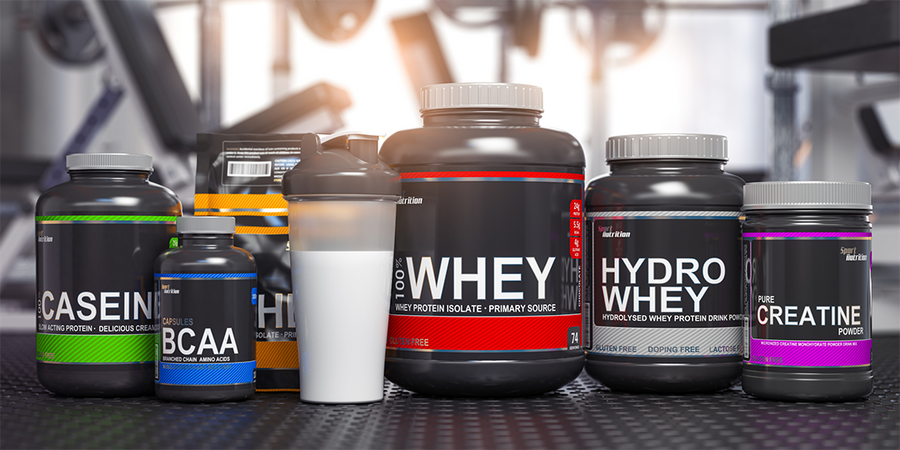
What Are the Best Supplements for Building Muscle?
By LADDER
When it comes to finding the best muscle building supplement, there's a big difference between efficacious supplements that can move the needle and those that merely deliver marketing hype.
Depending on a number of factors that include age, genetics, and training state, experts contend that the average amount of muscle you can legally pack onto your body (read: no steroids) is one to two pounds per month. Can you build more than that? Perhaps. But it takes the right combination of consistent workouts, proper diet, and targeted supplementation to push beyond average.
What are the best muscle building supplements? The list of ingredients that really work is shorter than you might think. But, if your goal is high performance, here's where supplementation can make a real difference.
Get more than 20 grams of high-quality protein and recovery-boosting tart cherry extract in each scoop of LADDER Whey and Plant Protein.
.
What Is the Best Supplement for Gaining Muscle?
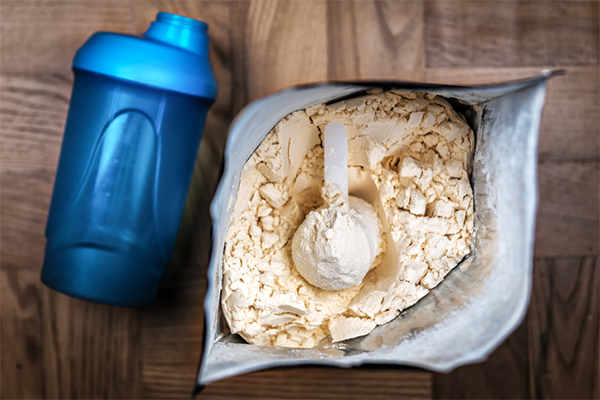
Protein powder is the foundation of your muscle-building plan.
What does protein do?
Strenuous exertion of muscle can cause damage, and protein is needed to help your body recover and repair that damage, a process known as muscle protein synthesis. When you repair muscle fibers broken down by strength training, that's when they grow.
That's why high-quality protein powder is so beneficial. Taken in sufficient amounts, it provides your body with the nutrients you need to support the growth of lean muscle.*
All proteins are comprised of amino acids, and some of them — like leucine (one of the three BCAAs) — are more important to help support muscle growth. But, unless you have all of the nine essential amino acids, then your body can't put those “growth" amino acids to work.
For example, collagen, which is lower in BCAAs than other proteins, would not be the best choice for gaining muscle. It's not so much a matter of whether collagen is healthy or not, but on its own it's incomplete and therefore unable to put that protein to full use for muscle growth.
How much protein should you consume?
In general, you want to eat about 1.4 to 2 g of protein per kilogram of your current body weight per day. So if you weigh 180 pounds, or roughly 82 kg, you should eat about 115 to 164 g of protein daily.
This is why protein powders are the foundation of your muscle-building plan: They offer a concentrated amount of protein that's convenient to consume.
What Is the best form of protein?
Your best options, depending on dietary preference, are whey protein and pea protein.
Whey is derived from milk and is the fastest-digesting form of protein. It comes primarily in two formulations: concentrate and isolate, with whey protein isolate being the purer of the two and also the form used in LADDER Whey Protein.
If you follow a vegan or vegetarian diet, or if you are sensitive to dairy, pea protein like the type used in LADDER Plant Protein is your best bet because of its high leucine content. Most other plants — like rice or hemp — offer less complete protein profiles and can be rough on your stomach.
How best to consume protein
Aim for about 20 to 40 g of protein per meal from any source. Protein powders are most convenient about two hours before or after your workout.
You can also take a slow-digesting protein — like casein or milk protein isolate — before bedtime to help promote muscle growth while you sleep.
.
What Other Muscle-Building Supplements Actually Work?
Different supplements take different approaches to the end goal of muscle growth. Here are the top ingredients and their various mechanisms of action.
1. Creatine
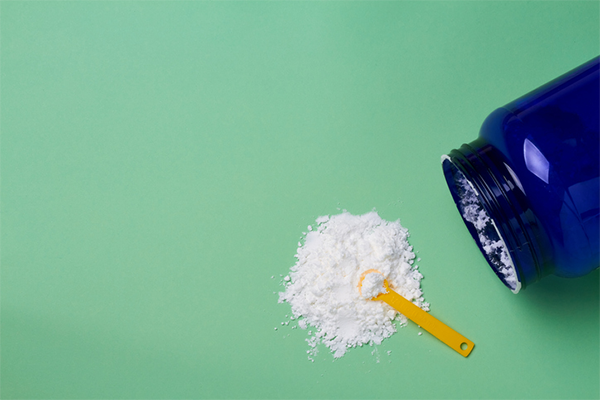
A compound usually found in meat, creatine helps boost strength, endurance, and power, and supports muscle growth. Maybe most importantly, it's the most clinically tested performance supplement as you can buy.
Creatine is found in many foods, including beef, chicken, milk, and cheese, but in amounts so small you'd have to eat 2 to 3 pounds of meat per day to derive the same benefit of about one teaspoon of the powder form.
How does creatine work?
Creatine provides extra energy when you need it most, lending additional phosphate to the cycle that produces ATP, your body's primary fuel source. And that additional energy can make a world of difference for your strength: In a review of 22 studies, participants who used creatine showed an 8 percent increase in strength compared to those who didn't.
And the energy boost that you enjoy during strength training also appears in short-burst activities like sprints, yielding improvements in speed and recovery between efforts. It may even help speed the process by which you regain lost muscle.*
How best to consume creatine
Your best option is creatine monohydrate, the form found in LADDER Pre-Workout; nothing even comes close in terms of clinical research. In general, aim for 5 g per day, and up to 10 g if you have more muscle mass.
Some favor a "loading" period during which larger amounts of creatine are initially taken daily for a brief period before switching to an ongoing schedule of regular servings.*
You can mix creatine in hot or cold liquids, but the hotter the temperature, the quicker the creatine will degrade before consumption. Creatine remains stable in liquid for just a short period of time, making its powdered form most reliable.
2. Beta-alanine
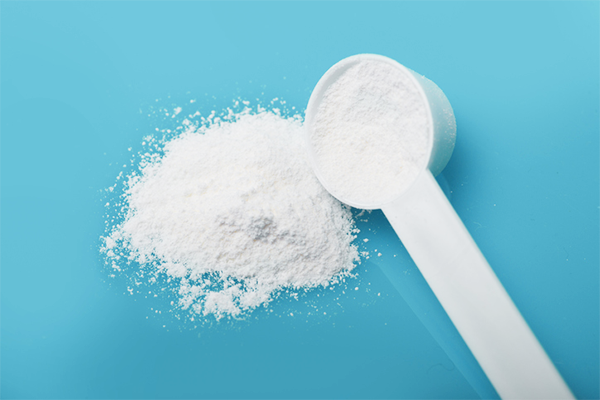
If you want to build more muscle, there are three primary ways to do it: muscle tension, metabolic stress, and muscle damage. All three are triggered by working out harder and longer. That's where beta-alanine is your friend.
How does beta-alanine work?
Beta-alanine aids in the production of carnosine, which helps reduce muscle fatigue and improves endurance during intense, burst exercises like weight training.*
How best to consume beta-alanine
To see the effects of beta-alanine, you need to consume at least 1.6 g per day, with an upper limit of 6 g daily. It will take some time to build up in your system so it's important to take beta-alanine consistently. Noticeable benefits may require 4 to 8 weeks of regular consumption.
For some people, beta-alanine can trigger a mild “tingle" effect that some people find unusual. The more beta-alanine you take, the more likely you are to experience this tingle.
To help overcome that effect, you can consume a time-released beta-alanine formula, split your dose, or take it with food and additional water. For instance, when taking LADDER Pre-Workout, if you don't like the tingling sensation, simply mix it with 20 ounces of water and food.
3. HMB
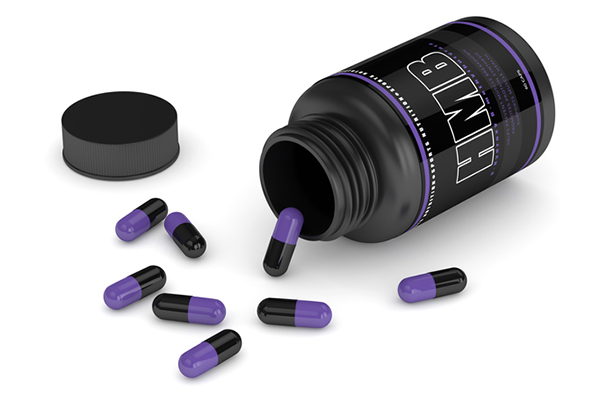
Hydroxymethylbutyrate, or HMB, is a compound that results from the metabolization of leucine in the body. Often taken to help curb muscle lost to aging, HMB supplementation taken for exercise has also been found to positively impact muscle mass, performance, and recovery.
How does HMB work?
The effects of HMB are sort of twofold: on the one hand, it helps promote muscle protein synthesis, the process by which protein becomes muscle following exercise, and on the other, it helps decrease muscle protein breakdown.
The result is increased muscle growth, strength, and power with enhanced recovery. However, HMB requires a level of activity sufficient to cause muscle damage — either high intensity and/or high volume — in order to be most effective.*
How best to consume HMB
The International Society of Sports Nutrition says HMB can be consumed for both chronic (ongoing) and acute (momentary) benefits. For either, you would need to consume more than 600 g of protein per day to synthesize the amount of dietary leucine (60 g) necessary to yield the daily recommended dose of HMB used in human studies, so HMB is typically increased via supplementation.
For chronic benefits, ISSN recommends consuming 3 g of HMB, divided into three servings daily, for two weeks prior to intense training sufficient to cause muscle damage. For acute benefits, the organization suggests taking 3 g of HMB at least 60 minutes prior to intense exercise, longer if accompanied by glucose.
*These statements have not been evaluated by the Food and Drug Administration. This product is not intended to diagnose, treat, cure, or prevent any disease.



